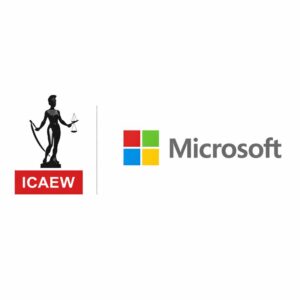Agentic AI in Accounting: The Future of Automated Financial Management

How agentic AI is revolutionizing accounting with automation and real-time insights for smarter financial management.
The accounting industry is undergoing a major digital transformation. Agentic AI is among the most promising innovations reshaping the profession. It’s a next-generation artificial intelligence capable of independent decision-making. It also handles task automation and continuous learning. Unlike traditional automation tools, agentic AI in accounting doesn’t just follow rules. It plans, adapts, and acts autonomously across complex workflows.
In this guide, we’ll explain what agentic AI is. We will explore its impact on modern accounting practices and highlight practical use cases. We will also discuss what this means for finance professionals. You might be curious about the future of AI in accounting. This applies if you are a CFO. It is also relevant for a small business owner or an accountant. This article offers the insights you need.
What Is Agentic AI?
Agentic artificial intelligence refers to AI systems that operate with a sense of agency. This means they can:
- Set and pursue goals
- Make decisions without human input
- Interact with software platforms and data sources
- Learn from outcomes and adapt behavior over time
Unlike rule-based bots or predictive models, agentic AI agents handle full processes, not just isolated tasks. These systems go beyond automation and function as digital assistants capable of managing end-to-end accounting operations.
Why Agentic AI Is a Game-Changer for Accounting
Accounting and finance involve large volumes of structured data. They have tight regulatory requirements. They also consist of repetitive tasks that vary slightly month to month. This makes them ideal for AI-driven accounting automation. Agentic AI excels in areas where previous technologies have fallen short, including adaptability, cross-platform integration, and real-time decision-making.
Here’s how agentic AI transforms accounting:
- Automates bookkeeping and reconciliations
- Ensures compliance with tax laws and accounting standards
- Monitors financial health in real time
- Reduces manual errors and improves accuracy
- Frees up time for strategic financial planning
Top Use Cases for Agentic AI in Accounting
1. Autonomous Bookkeeping
Agentic AI can categorize transactions, reconcile accounts, and update the general ledger automatically. It learns from previous entries and applies that knowledge to new financial data.
Benefits: Reduced bookkeeping time, fewer errors, and lower operational costs.
2. Real-Time Financial Audits
Instead of preparing for audits manually, AI agents maintain a continuous audit trail. They collect documentation, monitor compliance, and generate reports proactively.
Benefits: Faster audits, better compliance, and real-time transparency.
3. Automated Tax Compliance
Agentic AI tracks tax regulations across jurisdictions, applies rules to financial transactions, and prepares tax filings. It identifies potential risks and recommends corrections.
Benefits: Improved compliance, reduced penalties, and faster tax reporting.
4. AI-Powered Forecasting and Variance Analysis
AI agents monitor actual performance against forecasts. They detect anomalies and recommend corrective actions before issues escalate.
Benefits: Improved forecasting accuracy and faster response to financial issues.
5. Cash Flow Management with AI
By analyzing receivables, payables, and spending patterns, agentic AI predicts cash flow needs. It suggests actions like adjusting payment schedules or securing short-term credit.
Benefits: Better liquidity management and reduced financial risk.
6. Compliance with Accounting Standards (GAAP, IFRS)
AI agents interpret complex accounting regulations and apply the correct treatment to transactions. They flag inconsistencies and assist in accurate reporting.
Benefits: Stronger compliance, fewer manual reviews, and improved audit readiness.
Agentic AI vs Traditional AI in Accounting
| Task Scope | Single-task | Multi-step processes |
| Adaptability | Limited | Highly adaptive |
| Decision-Making | Reactive | Proactive |
| Integration | Often siloed | System-wide |
| Oversight Required | High | Minimal |
Benefits of Using Agentic AI in Accounting Software
Many modern AI accounting software platforms are integrating agentic capabilities. This includes tools that:
- Manage full accounting cycles automatically
- Communicate with CRMs, ERPs, and banking systems
- Provide dashboards with real-time financial insights
Examples: Workday, Xero with AI plugins, Auditoria.AI, and Basis are exploring or offering agentic AI functionality.
Challenges of Implementing Agentic AI in Finance
Despite its promise, deploying agentic AI comes with challenges:
- Data security and privacy
- Regulatory transparency and auditability
- Change management and user trust
- Integration with legacy systems
The Evolving Role of Accountants in the Age of AI
Agentic AI is taking over routine tasks. The role of the accountant is shifting from manual data entry to strategic analysis. Accountants now focus on oversight. Accountants now act as:
- Advisors to leadership
- Analysts of AI-generated data
- Guardians of compliance and ethics
- Supervisors of AI system accuracy
Upskilling in AI, data analytics, and digital tools will be essential for accounting professionals who want to stay competitive.
Future Trends: What’s Next for AI in Accounting?
- Virtual CFO agents for SMBs
- Continuous, real-time closings
- AI-led fraud detection
- Industry-specific accounting agents
Conclusion: Agentic AI Is the Future of Accounting Automation
Agentic AI is revolutionizing accounting by turning software into proactive financial partners. From automated bookkeeping to real-time tax compliance, this technology enables businesses to streamline operations and gain strategic insights.
The future of accounting is intelligent, autonomous, and collaborative. By embracing agentic AI now, firms can stay ahead of the curve, improve accuracy, reduce costs, and unlock new value.





